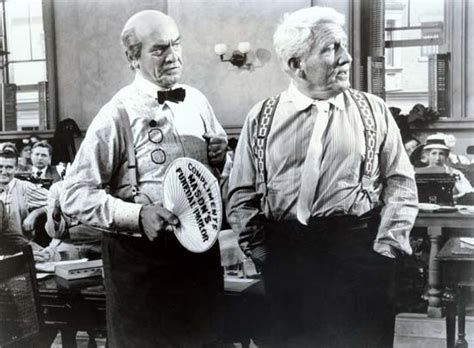Inherit the Wind is a seminal play written by Jerome Lawrence and Robert Edwin Lee, first performed in 1955. The play is a fictionalized account of the 1925 Scopes “Monkey Trial,” which debated the teaching of evolution in public schools. While the names and some details have been changed, the core issues and tensions of the original trial remain a powerful backdrop for exploring freedom of thought, the role of religion in society, and the clash between traditional values and progressive ideas.
Historical Context: The Scopes Trial
To understand the significance of Inherit the Wind, it’s essential to delve into the historical context of the Scopes trial. In 1925, Tennessee passed the Butler Act, which prohibited the teaching of evolution in public schools. John Scopes, a high school biology teacher, was arrested for violating this law by teaching evolution from a textbook that included the theory of evolution. The trial became a national sensation, pitting William Jennings Bryan, a three-time presidential candidate and fundamentalist Christian, against Clarence Darrow, a renowned lawyer and agnostic, in a battle of wits and ideologies.
The Play’s Narrative
Inherit the Wind is set in the fictional town of Hillsboro, where Bertram Cates, a young teacher, is put on trial for teaching evolution to his students. The prosecution is led by Matthew Harrison Brady, a charismatic and devout Christian, modeled after William Jennings Bryan. The defense is headed by Henry Drummond, a witty and experienced lawyer, inspired by Clarence Darrow. As the trial unfolds, the play delves into themes of intellectual freedom, the importance of questioning established beliefs, and the dangers of dogmatic thinking.
Themes and Symbolism
- Intellectual Freedom: The play is a powerful exploration of the importance of allowing individuals to think freely and question established ideas without fear of retribution. This theme is exemplified through the character of Bertram Cates, who risks his career and reputation to teach evolution, demonstrating the human desire for knowledge and understanding.
- Religion vs. Science: Inherit the Wind touches on the often contentious relationship between religious beliefs and scientific theories, highlighting the challenges that arise when these two realms intersect. The debate between Matthew Harrison Brady and Henry Drummond serves as a catalyst for this exploration, showcasing the complexities and nuances of this ongoing discussion.
- Tolerance and Understanding: Through its characters and their interactions, the play advocates for tolerance, mutual respect, and the pursuit of truth, regardless of one’s beliefs. The relationship between Drummond and Brady, despite their differences, illustrates the possibility of respectful dialogue and the importance of empathy in bridging ideological divides.
Character Analysis
- Henry Drummond (Defense Attorney): Drummond is a complex character, embodying the spirit of inquiry and the pursuit of truth. His sharp wit and legal prowess are matched by his compassion and deep understanding of human nature. Drummond’s character serves as a voice of reason, encouraging the audience to consider the value of critical thinking and intellectual curiosity.
- Matthew Harrison Brady (Prosecution Attorney): Brady represents the force of tradition and the power of deeply held beliefs. His character underscores the challenges of reconciling personal convictions with the demands of a changing world. Through Brady’s struggles, the play highlights the tension between adhering to long-held beliefs and embracing new ideas and perspectives.
- Bertram Cates (The Accused Teacher): Cates is the pivot around which the play’s events unfold. His decision to teach evolution, despite the legal and social risks, symbolizes the struggle for intellectual freedom and the human quest for knowledge. Cates’ character embodies the courage required to challenge established norms and the importance of standing by one’s convictions, even in the face of adversity.
Impact and Legacy
Inherit the Wind has had a profound impact on American theatre and beyond, becoming a classic of 20th-century drama. The play’s exploration of timeless themes continues to resonate with audiences, making it a staple of educational curricula and theatrical repertoires. The play has been adapted into several film versions, including a 1960 movie starring Spencer Tracy and Fredric March, which introduced the story to a wider audience.
FAQs
What is the historical basis of Inherit the Wind?
+Inherit the Wind is based on the 1925 Scopes "Monkey Trial," which was a real court case in Tennessee involving the teaching of evolution in public schools. The play fictionalizes the events and characters but retains the core debates and tensions of the original trial.
Who are the main characters in Inherit the Wind, and what do they represent?
+The main characters include Henry Drummond, the defense attorney who represents the pursuit of truth and intellectual freedom; Matthew Harrison Brady, the prosecution attorney who embodies tradition and the power of belief; and Bertram Cates, the accused teacher who symbolizes the struggle for knowledge and the right to question established norms.
What themes are explored in Inherit the Wind?
+The play explores themes of intellectual freedom, the relationship between religion and science, tolerance, and the importance of questioning established beliefs. These themes are timeless and continue to resonate with audiences today, making the play a powerful commentary on human society and the pursuit of knowledge.
Why is Inherit the Wind considered a classic of American theatre?
+Inherit the Wind is considered a classic due to its thought-provoking exploration of fundamental human issues, its well-crafted characters, and its historical significance. The play's ability to engage audiences in a dialogue about freedom, belief, and the pursuit of truth has made it a staple of educational and theatrical communities.
Conclusion
Inherit the Wind stands as a testament to the enduring power of theatre to illuminate the human condition, challenge societal norms, and inspire critical thinking. Through its vivid characters, engaging narrative, and exploration of universal themes, the play continues to captivate audiences and stimulate meaningful discussions about the role of education, religion, and intellectual freedom in our lives. As a cultural and historical document, Inherit the Wind offers a unique window into the past while remaining remarkably relevant to the present, ensuring its place as a significant work of American drama.


